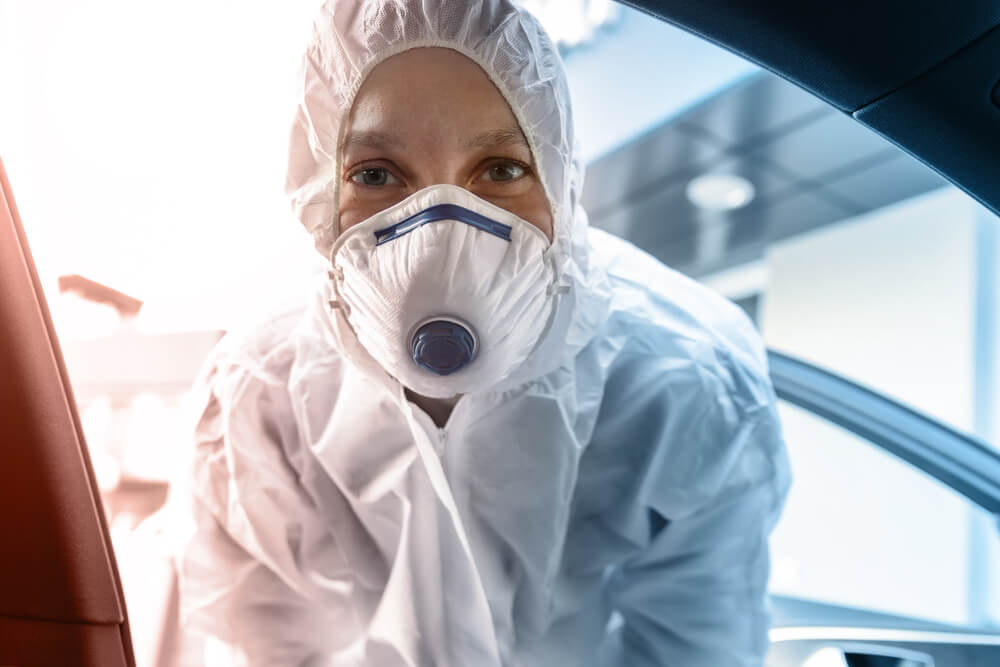
The city of Chicago will hire 600 people using $56 million in state and federal funds to carry out coronavirus contact tracing, Mayor Lori Lightfoot announced. The mayor believes this effort will “stamp out” the virus.
Mayor Lightfoot asserts that, contact tracing is “among the most important weapons that we have in the fight” against the coronavirus.
Details of Chicago’s COVID Contact Tracing Corps
The newly hired contact tracers are expected to begin work in August. Contact tracers start at $20 per hour, and supervisors will earn $24 per hour, the mayor said, adding that all contact tracers will receive benefits. At this point, the project will last for 18 months. The program will also provide workers with “Earn-as-You-Learn” opportunities to promote long-term sustainable growth and open up potential career paths.
Chicago is also accepting proposals for the contact tracing contract on its coronavirus website. The company that wins the contract will be required to set aside 85% of its funding for at least 30 neighborhood groups to conduct the work, Mayor Lightfoot said. These small, neighborhood-based contact tracing groups will then recruit and hire people who have historically faced barriers to employment.
Lightfoot believes that setting aside 85% of the funds will ensure the money will be used to confront the “long-standing inequity” that she believes worsened the virus’ effect on Chicago’s West and South sides. She also believes this will make “permanent changes.” “We must not focus on building temporary scaffolding,” Lightfoot said.
The mayor added that unemployed Chicagoans will be able to get training and work as contact tracers. Moreover, they will serve as neighborhood “ambassadors” for the health care system in areas of the city where few can access preventive care.
Once the new contact tracing program is up and running, the newly trained contact tracers will be able to trace 4,500 contacts every day, Lightfoot predicts.
Contact Tracers are a Part of the Illinois State Budget
The state budget includes $900 million in funding to help slow the spread of the virus. It is believed that expanded testing and creating a contact tracing system will achieve that goal. Governor Pritzker believes that the state needs an army of 3,800 contact tracers.
For the novel coronavirus, a “contact” is a person with whom the infected person was within 6 feet for more than 15 minutes, starting 48 hours before the onset of the illness. The manner in which the contacts will be identified has not been disclosed; it’s unknown whether contacts will be identified by the infected person, or if cellphone data or security camera data will be used.
Many Lawmakers Think Contact Tracing is Vital
Contact tracing involves tracking down everyone who may have come in contact with a newly confirmed case of the coronavirus. Often, cell phone tracking data can be used. Once identified, everyone who has been contact traced can be tested and encouraged to remain quarantined.
The belief is that since the coronavirus can be transmitted by people who are asymptomatic, it is very important to find “contacts” as soon as possible after they may have been exposed. Then the state can attempt to take measures to ensure they do not spread the virus.
The Chicago Department of Public Health routinely utilizes contact tracing in an attempt to halt the spread of infectious disease. In fact, the department used contact tracing when the first cases of the coronavirus were detected in the city.
Unfortunately, when the coronavirus began to spread through the Chicago area, the city’s resources were quickly overwhelmed. This justified state and city officials issuing stay-at-home orders and closing “nonessential” businesses. As the state of Illinois moves through the reopening phases, state lawmakers believe contact tracing is the answer to controlling future outbreaks.









